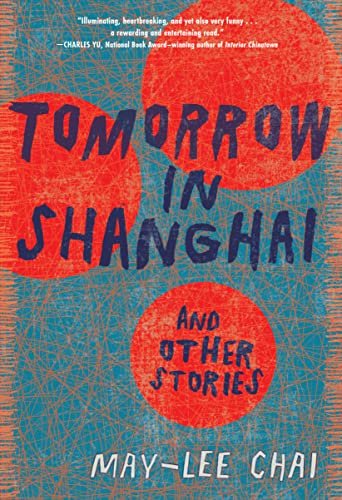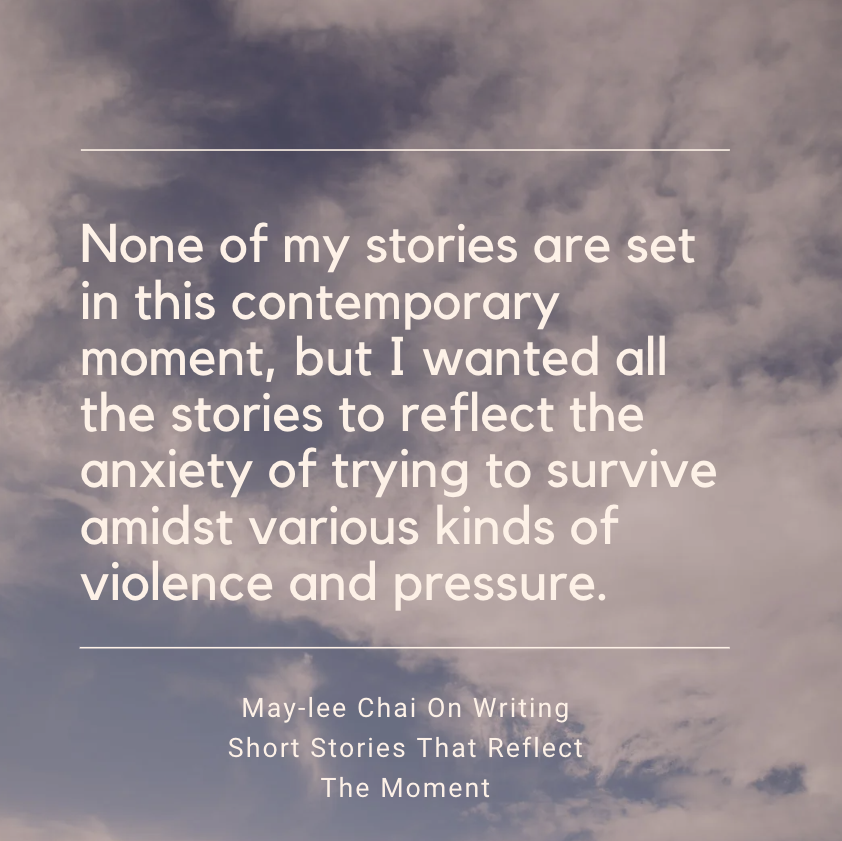Today's guest is Ling Ling Huang, author of Natural Beauty. Ling Ling joined me today to talk about writing body horror, and how the clean beauty industry leant itself so well to the topic.
May-lee Chai On Writing Short Stories That Reflect The Moment
Inspiration is a funny thing. It can come to us like a lightning bolt, through the lyrics of a song, or in the fog of a dream. Ask any writer where their stories come from and you’ll get a myriad of answers, and in that vein I created the WHAT (What the Hell Are you Thinking?) interview.
Today’s guest for the WHAT is May-lee Chai, author of Tomorrow in Shanghai. May-lee Chai is a writer and educator. She is the recipient of an American Book Award and a National Endowment for the Arts Fellowship. In addition to her books, she has published numerous short stories and essays in journals, magazines, and anthologies,
Ideas for our books can come from just about anywhere, and sometimes even we can’t pinpoint exactly how or why. Did you have a specific origin point for your book
I wrote the stories in Tomorrow in Shanghai over many years, but I started putting the collection together during the pandemic amid a series of anti-Asian attacks. Those twin phenomena really shaped which stories I wrote and/or selected for the collection. None of my stories are set in this contemporary moment, but I wanted all the stories to reflect the anxiety of trying to survive amidst various kinds of violence and pressure.
Once the original concept existed, how did you build a plot around it?
For all my stories, I usually start with the image of a character or a setting for a character. For example, in “Life on Mars” it was Yu being driven from the airport in Denver to his new town and his realizing the world looks very different from his home in China. I wanted to see how he’d adapt in a place that felt completely alien to him, so I started throwing problems at him to see how his character would react. In “Hong’s Mother,” I knew the mother and daughter were going to end up in Lourdes, France on a pilgrimage of sorts, one that the mother wanted for religious reasons and the daughter for completely different reasons. I wanted to see if I could write towards them having an epiphany in their relationship, but I didn’t know when I began how they’d reach that point or what it would look like.
Have you ever had the plot firmly in place, only to find it changing as the story moved from your mind to paper?
Yes! In “Life on Mars,” I originally imagined that the story was going to end differently, but as I wrote into the character, his capacity for resilience and optimism ultimately proved more interesting to me than my original plot point.
Do story ideas come to you often, or is fresh material hard to come by?
I am constantly working on different projects, some short and some long. If I feel stuck in one, then I move on to the others. And when I feel refreshed, and my mind is ready to return to one of the long-term projects, I can go back and work on it again.
How do you choose which story to write next, if you’ve got more than one percolating?
I write what I’m interested in developing and discovering more about.
I have 6 cats and a Dalmatian (seriously, check my Instagram feed) and I usually have at least one or two snuggling with me when I write. Do you have a writing buddy, or do you find it distracting?
Distracting! I write with headphones on and need to try to block out all other sensory distractions.
Dr. Tara T. Green On Black Women As Activists, Performers, And Women With Desires
Today's guest is Dr. Tara T. Green author of Love, Activism, and the Respectable Life of Alice Dunbar-Nelson as well as See Me Naked: Black Women Defining Pleasure During the Interwar Era. Dr. Green joined me today to talk about black women throughout history, both known and unknown, who brought forth different perspectives, and whose stories remain relevant today.




